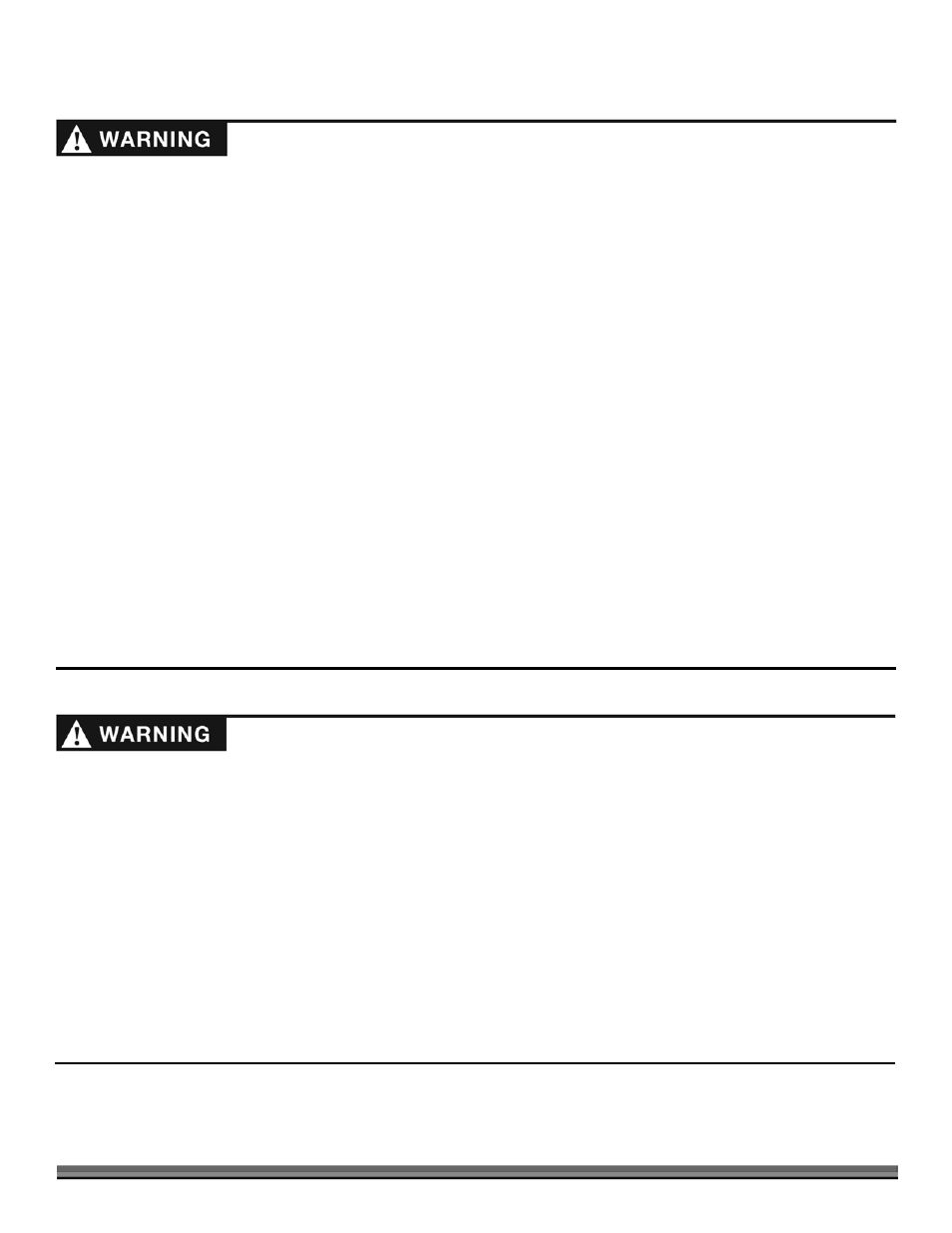DR Power Dual Action 15-Ton Gas (Aug 2011 - Present) User Manual
Page 5

CONTACT US AT www.DRpower.com 5
Gasoline is a highly flammable liquid. Gasoline also gives off flammable vapor that can be easily ignited and cause a fire or
explosion. Never overlook the hazards of gasoline. Always follow these precautions:
Never run the engine in an enclosed area or without proper ventilation as the exhaust from the engine contains carbon
monoxide, which is an odorless, tasteless, and deadly poisonous gas.
Store all fuel and oil in containers specifically designed and approved for this purpose and keep away from heat and open
flame, and out of the reach of children.
Replace rubber fuel lines and grommets when worn or damaged and after 5 years of use.
Fill the gasoline tank outdoors with the engine off and allow the engine to cool completely. Don't handle gasoline if you or
anyone nearby is smoking, or if you're near anything that could cause it to ignite or explode. Reinstall the fuel tank cap and
fuel container cap securely.
If you spill gasoline, do not attempt to start the engine. Move the machine away from the area of the spill and avoid creating
any source of ignition until the gas vapors have dissipated. Wipe up any spilled fuel to prevent a fire hazard and properly
dispose of the waste.
Allow the engine to cool completely before storing in any enclosure. Never store a machine that has gas in the tank, or a fuel
container, near an open flame or spark such as a water heater, space heater, clothes dryer or furnace.
Never make adjustments or repairs with the engine running. Shut down the engine, disconnect the spark plug wire, keeping it
away from the spark plug to prevent accidental starting, wait 5 minutes before making adjustments or repairs.
Never tamper with the engine’s governor setting. The governor controls the maximum safe operation speed and protects the
engine. Over-speeding the engine is dangerous and will cause damage to the engine and to the other moving parts of the
machine. If required, see your authorized dealer for engine governor adjustments.
Keep combustible substances away from the engine when it is hot.
Never cover the machine while the muffler is still hot.
Do not operate the engine with the air cleaner or the carburetor air intake cover removed. Removal of such parts could create
a fire hazard. Do not use flammable solutions to clean the air filter.
The muffler and engine become very hot and can cause a severe burn; do not touch.
ALWAYS check before towing to make certain your splitter is correctly and securely attached to the towing vehicle. Be sure
that the ball hitch you are using is the proper size for the hitch coupler on the splitter. Be sure the safety chains are properly
hooked to the vehicle leaving enough slack for turning.
ALWAYS raise the jack to the highest setting before transporting the splitter.
ALWAYS use accessory lights and devices when transporting on a road or highway to warn operators of other vehicles. Check
your local government regulations for DOT information.
ALWAYS allow for added length of the splitter when turning, parking, crossing intersections, and in all driving situations.
ALWAYS be careful when backing up. You could jackknife your splitter if care is not taken.
ALWAYS travel slowly over rough terrain, on hillsides, and around curves to prevent tipping.
NEVER exceed 30 mph. when towing your splitter. Obey all state and local regulations when towing on state and local roads
and highways. Adjust your speed for terrain and conditions, as needed. Be extra cautious when towing over rough terrain,
especially over a railroad crossing.
NEVER allow anyone to sit or ride on your splitter.
NEVER carry any cargo on your splitter.
NEVER tow the splitter near the edge of a ditch.
Safety with Gasoline - Powered Machines
Towing (optional Road Tow Kit)
